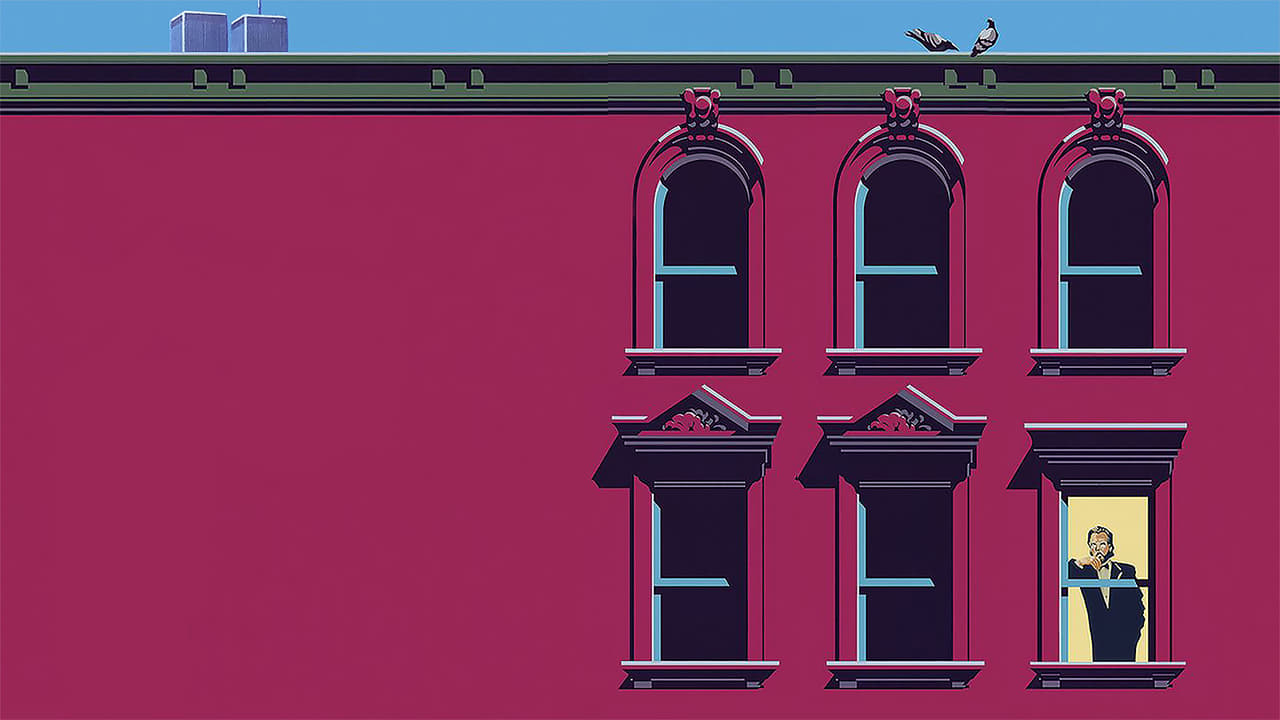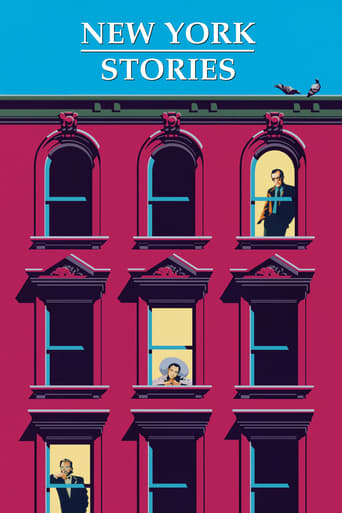

Review: These 3 short movies by these top directors, wasn't as good as I thought they would be. Scorsese's short movie with Nick Nolte and Rosanna Arquette, was the best of the three but I still expected better from him. The story follows a painter who is totally in love with his ex-partner, who keeps on using him, and he only seems to paint when she is in his life. Nolte put in a good performance, but the storyline didn't seem to go anywhere. The next short from Coppola was terrible. It followed a young girl who had rich parents and seemed to live by herself most of the time because of there busy work commitments. Personally, I found the little girl annoying and this was another storyline that was weak and uninteresting. Woody Allen's short wasn't that much better. Its about a man who has an annoying mother who just won't stop interfering in his life. I didn't find this short that funny and the whole woman in the sky thing was ridiculous. In all, I was disappointed with these short movies which centred around New York, but out of all of the directors, Scorsese is the winner. Disappointing!Round-Up: Once these directors heard that they were going to be making a movie together, based on 3 different stories, I expected them to pull out there best work, but the end results were quite poor. Coppola hasn't done anything that amazing since the Untouchables and the Godfather and Woody Allen hasn't done anything in the same calibre as Scorsese. I think that the whole film was based on there love for New York, hence the title, but the individual films haven't really got that much to do with the city. I know that it's obvious that they were filmed in New York but thats about it. Anyway, Scorsese latest movie, The Wolf Of Wall Street was brilliant and his work on this project put the other 2 directors to shame. As this film came out in 1989, I think that it would be totally different if the directors teamed up again to make another movie like this. Budget: $15million Worldwide Gross: $11millionI recommend this movie to people who are into there dramas about 3 different stories based in New York and directed by Coppola, Scorsese and Woody Allen. 4/10
... View MoreNew York Stories is so uneven that not only is it impossible to refer to it as one movie, it's impossible to treat it as a coherent anthology. Martin Scorsese's 'Life Lessons' is a interesting little drama piece, following After Hours and The King of Comedy in Marty's tackling less-obvious themes. The writing is uneven, but tremendous performances by Nolte and Arquette make it work. 4 stars.Coppola's 'Life Without Zoe' is ridiculously bad on each and every level, from the acting and writing to the ludicrous theme song. Unlike many, I don't think the blame lies entirely with Sofia Coppola, Francis's directorial work is sub-par here. 1 star.'Oedipus Wrecks' is, by itself, enough to make this essential viewing for Woody Allen fans at least, as it's classic Allen and possibly one of his finest works. Mae Questel (of Betty Boop and Popeye fame) is brilliant as Allen's mother. 5 stars.So, the only fair way to rate New York Stories is with a completely objective average, which comes in at 3.33 stars. If at all possible, watch the first and third segment and completely skip the second, and you'll get an enjoyable and not-too-long double feature.
... View MoreYou get three of the world's most talented filmmakers together to make a film about the city that inspired the majority of their films and you would expect a little more than what New York Stories has to offer. Martin Scorsese's story is about an artist (Nick Nolte) who falls in love with his assistant. The whole thing is rather silly, there's no complexity or depth. Francis Ford Coppola's Life without Zoe is more fun than the previous film, but still has little impact. Woody Allen's inspired piece about a man haunted (literally) by his hounding mother is funny and seems to have more to say about New York than the previous films. Yet this is all a letdown, not really what you would expect from such big names in quality filmmaking.
... View MoreIt's exciting to find three high profile filmmakers working in a short story format, but (perhaps not surprisingly) this unique anthology adds up to something less than the sum of its parts. Because of the talent involved it's difficult to avoid playing the comparison/contrast game, which would make Martin Scorsese's 'Life Lessons' the most impressive segment, in large part because of Nick Nolte's dynamic portrayal of a burned-out bohemian artist in trend-setting SoHo. Scorsese's direction is no more stylish than the efforts of his companions, but there's more substance in this one episode than in both others combined. Francis Ford Coppola's 'Life Without Zoë' is a fizzy, uptown urban fairy tale told from the point of view of a precocious, sophisticated 12-year old heiress, and Woody Allen's amusing, typically neurotic 'Oedipus Wrecks' is reminiscent of one of his New Yorker essays, perhaps better suited to the printed page. Taken altogether, the trilogy is a diverting throwaway effort by three directors whose talents far outshine the material each is working with.
... View More